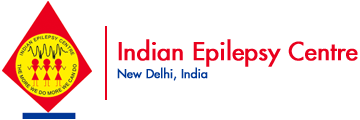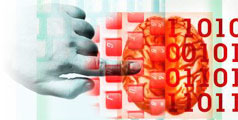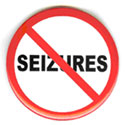
PLEASE CALL: 011-41614141
& 45695542
(Between 11:30 AM - 5:30 PM)

 |
FOR APPOINTMENTS PLEASE CALL: 011-41614141 & 45695542 (Between 11:30 AM - 5:30 PM) |
 |
Frequently Asked Questions On EpilepsyMARRIAGE & PREGNANCY: Q: Can persons with epilepsy have a normal married life? A: From a medical point of view, persons with epilepsy can marry. However, in some countries there have been laws and in others even now there are laws that prevent persons with epilepsy to marry. It is important that the would be spouse of a person with epilepsy should be aware of the situation. This prevents a lot of unnecessary misunderstandings later on in life. Counseling for marriage is a very delicate and special situation where extreme caution is necessary. The belief that epilepsy (especially in young girls) can be cured by marriage invariably complicates the whole problem and all efforts must be made to get rid of this notion. On the other hand, epilepsy should not be a bar to marriage in individuals with good seizure control. In a case where the seizures are too frequent with poor control, marriage may be inadvisable because of the obvious handicap. The individual should be told to inform the prospective marriage partner of the nature of the problem so that subsequent disasters can be avoided. It is useful to remember that anyone can have seizures and at any age. It should be understood that only some types of epilepsy have a hereditary basis. In such situations, the epileptic person is at risk of passing the epilepsy on to his/her children. In practical terms, the chance of one epileptic parent passing on epilepsy to the child is small. The risk of a child of an epileptic parent having epilepsy is only marginally higher than the risk of a child born to non-epileptic parents except when the parents have one of the well-defined hereditary epileptic syndromes. However, if both parents have epilepsy the risk of their children developing epilepsy is substantially higher than in general population. It is, therefore, medically recommended that most patients with epilepsy can marry and have children. As in many other situations, such decisions need to be taken separately for each individual keeping in mind many factors that may affect the decision. The marriageable girls with epilepsy must be reassured that most of the drugs can safely be continued throughout pregnancy and the risk of the baby is not greater than the harm that may be caused by stopping the treatment and precipitating seizures. Q: What is the effect of epilepsy on pregnancy and pregnancy on epilepsy? A: It has been seen that in 1/4 of pregnant women with epilepsy the seizures can worsen, in another 1/4 the seizures can improve and in the remaining half there is no change in the seizure frequency during pregnancy. Epilepsy can affect the pregnancy in many ways. Seizures during pregnancy can harm both the pregnant woman and her baby, especially if the seizures are frequent. Practically all the drugs that are used to treat epilepsy have effect on the fetus. Carbamazepine is probably safer than other anti-epileptic drugs available today. On the whole, there may be about 2-3 times more risk of an abnormal baby being born to epileptic mothers who are on treatment as compared to the general population. Even with this increased risk, almost 90 to 95% epileptic mothers can have a normal baby. The anti-epileptic drugs must be continued in the same dosage during the entire pregnancy. Treatment with one drug is preferred as the harmful effects to the baby increase if more than one drug are used. Occasionally estimation of drugs level in the blood may be required. The delivery of epileptic mothers should always be carried out in a well-equipped medical setup (preferably in a hospital) with regular antenatal visits. It must again be pointed out that most of epileptic mothers usually have an eventful pregnancy and produce normal and healthy babies. Q: Can mothers with epilepsy breast feed their babies while taking anti-epileptic drugs? A: Most of the anti-epileptic drugs taken by mothers are excreted in breast milk but their concentration varies according to chemical properties of the drug. Drugs like phenobarbitone can have significant concentration in the milk and infants being fed on such milk can be lethargic and irritable. Carbamazepine can also be present in low concentrations in breast milk but diphenylhydantoin and valproate rarely cause any problems. On the whole, most mothers having epilepsy can safely breast-feed their babies while taking their anti-epileptic drugs. In case of any problems, they should get in touch with their treating doctor. Next» SPORTS & RECREATION |
Myths & Facts  |